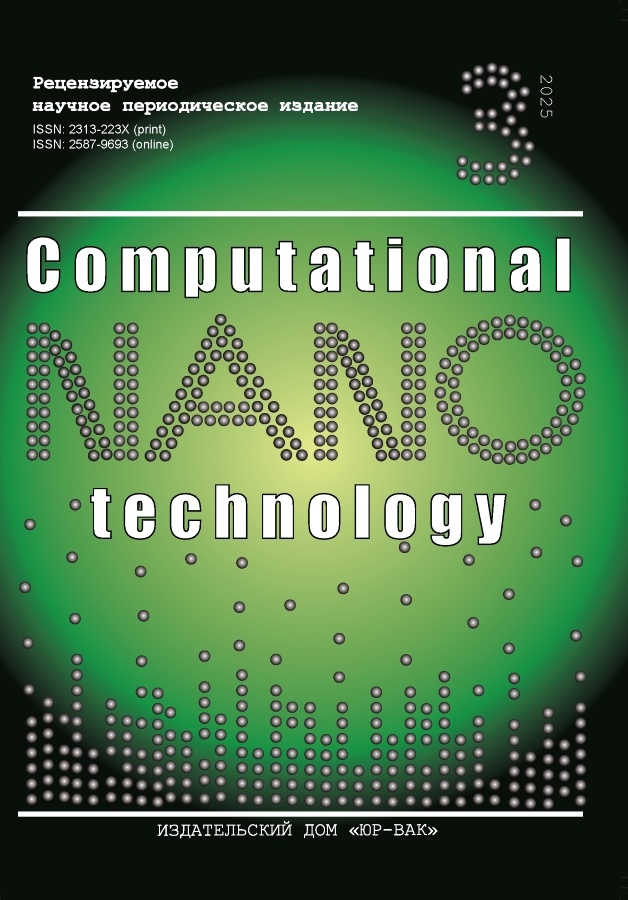Data processing and annotation in a distributed video stream mining system to detect destructive behavior
- Authors: Smolentseva T.E.1, Teterin N.N.1
-
Affiliations:
- MIREA – Russian Technological University
- Issue: Vol 12, No 3 (2025)
- Pages: 178-183
- Section: INFORMATICS AND INFORMATION PROCESSING
- URL: https://journals.eco-vector.com/2313-223X/article/view/695763
- DOI: https://doi.org/10.33693/2313-223X-2025-12-3-178-183
- EDN: https://elibrary.ru/BQPVPE
- ID: 695763
Cite item
Abstract
The article discusses a distributed system for intelligent video stream analysis designed for automatic detection of destructive behavior in educational institutions. The relevance of the study is due to the need to improve the efficiency of security systems in organizations where existing systems demonstrate significant limitations in response speed and objectivity of assessment. The purpose of this work is to develop the architecture of a distributed system for intelligent video stream analysis based on a three-level video data processing pipeline to identify destructive behavior. The main focus is on methods for processing and annotating video data within a three-level pipeline, including object detection (YOLO), behavior classification (CNN) and contextual event analysis. The system based on the proposed architecture and modules of the three-level pipeline allows for effective detection of destructive behavior, which demonstrates the promise of using neural network technologies to create intelligent security systems in organizational structures. In this article, the authors consider the use of a distributed system for intelligent analysis of video streams in educational institutions, but the proposed solution can be adapted for other organizational structures where prompt detection of aggression, fights and other forms of destructive behavior in crowded conditions is required.
Full Text
About the authors
Tatyana E. Smolentseva
MIREA – Russian Technological University
Author for correspondence.
Email: smoltan@bk.ru
ORCID iD: 0000-0003-4810-8734
Dr. Sci. (Eng.), head, Department of Applied Mathematics, Institute of Information Technologies
Russian Federation, MoscowNikolay N. Teterin
MIREA – Russian Technological University
Email: teterin@mirea.ru
ORCID iD: 0009-0007-5540-1038
SPIN-code: 7357-6836
assistant professor, Department of Applied Mathematics, Institute of Information Technology
Russian Federation, MoscowReferences
- Tsarkova E.G. On the possibility of recognition by the intelligent video surveillance system of deviant behavior of persons on the territory of protected objects of the UIS. In: Penitentiary security: National traditions and foreign experience. Proceedings of the All-Russian Scientific and Practical Conference with International participation (Samara, June 1–2, 2023). Samara: Samara Law Institute of the Federal Penitentiary Service of Russia, 2023. Pp. 210–212. EDN: ZVKCTT.
- Ryabchikov I.A. Method of automatic recognition of deviant behavior of people based on the integration of computer vision technologies and knowledge management to support decision-making by operators of video monitoring systems. Data Analysis and Processing Systems. 2022. No. 3(87). Pp. 21–36. (In Rus.). doi: 10.17212/2782-2001-2022-3-21-36. EDN: KGIUTQ.
- Uzdyaev M.Yu., Karpov A.A. Creation and analysis of a multimodal data corpus for automatic recognition of aggressive human behavior. Scientific and Technical Bulletin of Information Technologies, Mechanics and Optics. 2024. Vol. 24. No. 5. Pp. 834–842. (In Rus.). doi: 10.17586/2226-1494-2024-24-5-834-842. EDN: IGHOYN.
- Teterin N.N. General issues of the analysis of destructive behavior of users in social networks. In: Actual problems of activity of divisions of the penal enforcement system. Collection of materials of the All-Russian scientific and practical conference. (Voronezh, October 24, 2024). In 3 vols. Voronezh: Scientific Book, 2024. Pp. 96–99. EDN: OWDJUT.
- Teterin N.N., Smolentseva V.V. On the issue of formalizing the task of identifying destructive behavior using artificial intelligence technologies. Trends in the Development of Science and Education. 2024. No. 114-10. Pp. 81–83. (In Rus.). doi: 10.18411/trnio-10-2024-440. EDN: EEBVGI.
- Balabanova T.N., Abramov K.V., Boldyshev A.V., Dolbin D.M. Automatic detection of anger and aggression in speech signals. Economy. Computer Science. 2023. Vol. 50. No. 4. Pp. 944–954. (In Rus.). doi: 10.52575/2712-746X-2023-50-4-944-954. EDN: HNMGPZ.
- Shevchenko D.A. Actual aspects of the impact of various information sources on the destructive behavior of youth. In: Current issues of legal science through the eyes of young researchers. Collection of articles on the results of the Fourth All-Russian Scientific Conference of Cadets, Students, adjuncts, postgraduates and Applicants (Ryazan, February 2, 2024). Moscow; Nizhny Novgorod: Poster-M., RANEPA, 2024. Pp. 155–158. EDN: KXQXNK.
- Ergeshova A.J. The role of artificial intelligence in the prevention of destructive behavior among young people. In: Current trends in social communications: history and modernity. Collection of scientific articles. Izhevsk: Udmurt University Publishing House, 2024. Pp. 439–442. (In Rus.). EDN: IWVBYH.
- Pankratova M.D., Skovpen T.N. NLP models using neural networks in the analysis of news tonality. In: Analytical technologies in the social sphere: Theory and practice (Moscow, December 14, 2023). Vol. 15. Moscow: SIC “National Security”, 2023. Pp. 97–107. EDN: CTABKU.
- Kuchuk E.A. Forecasting conflicts using Data Science and network analysis methods. In: Analytical technologies in the social sphere: theory and practice (Moscow, December 14, 2023). Vol. 15. Moscow: SIC “National Security”, 2023. Pp. 44–49. EDN: MTWADV.











